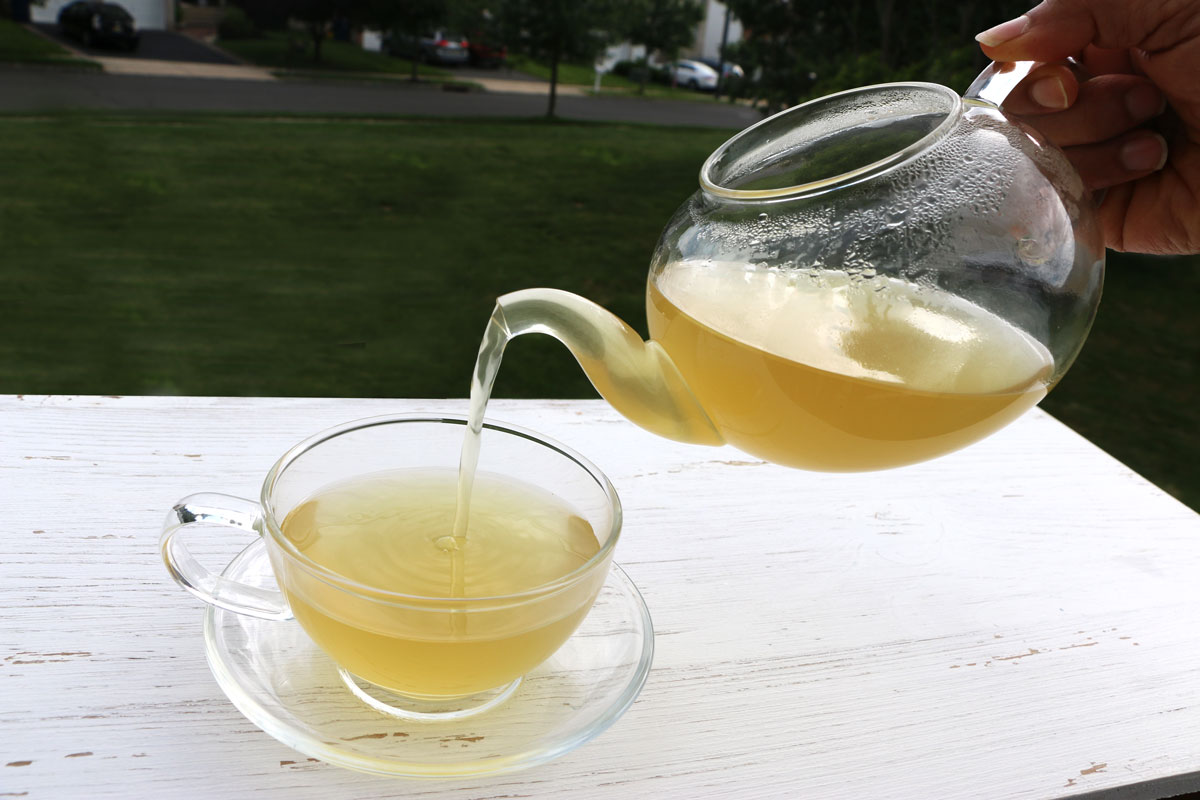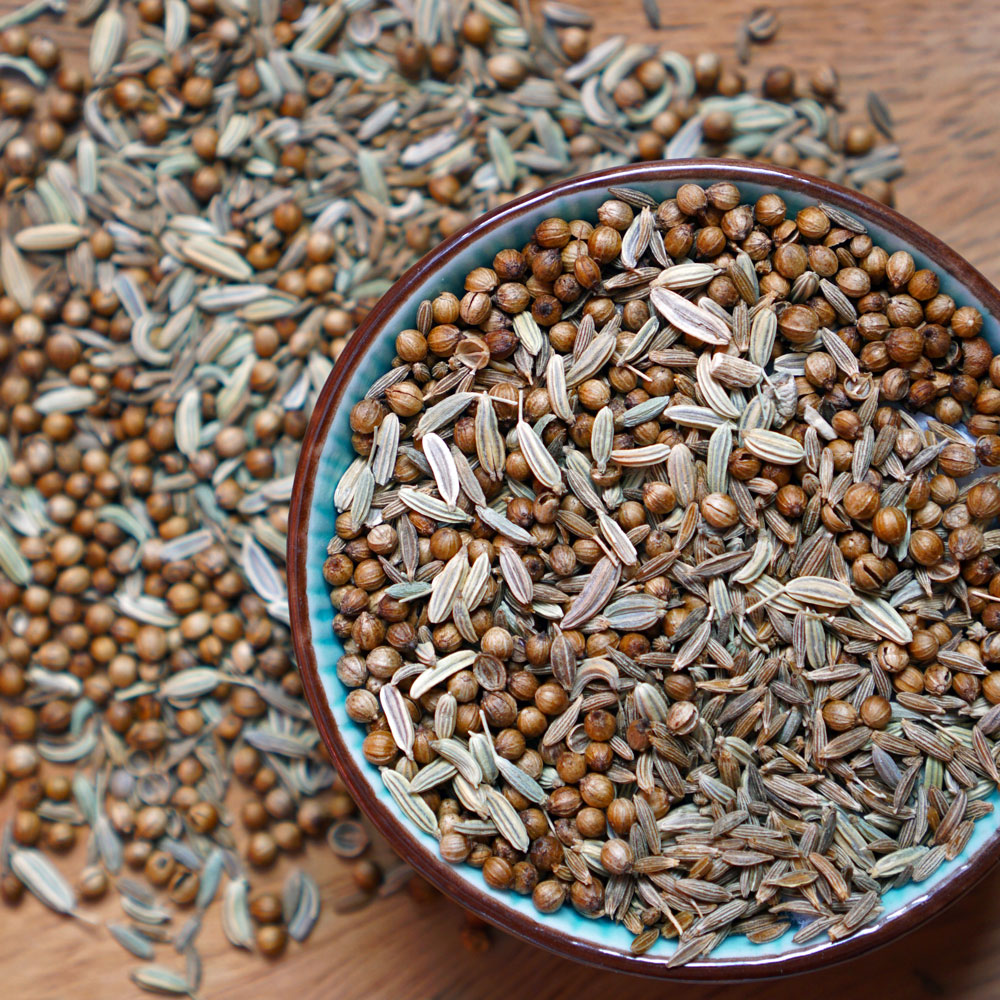How to Make CCF Tea
Mix Cumin, Coriander, and Fennel in equal parts. Add 1 teaspoon CCF tea to one cup of water. Bring to a boil and simmer for 5 minutes on low heat. Strain and serve. May also use this mix as a seasoning for cooking food.

Cumin Coriander Fennel tea (CCF tea) is a classic Ayurvedic tea that gently enkindles the agni (digestive fire) and burns ama (detoxifies). A wonderful aspect of CCF tea is that it does all this without aggravating pitta dosha, meaning this pleasant tea will not overheat those who run on the warm side. In fact, Ayurveda considers CCF tea to be tridoshic, meaning that it is suitable for all three constitutional types–vata, pitta, and kapha. CCF tea is commonly sipped during Ayurvedic cleanses because it assists the body in its natural detoxification and filtration processes. However, CCF tea is mild enough that it can be enjoyed any time. Cumin, coriander and fennel are all well-respected and versatile digestive spices, so brewed together in one tea they make the perfect digestive trifecta!
Cumin (Cuminum cyminum)
Cumin possesses an interesting balance of qualities. It has a pungent and bitter taste, a cool energy, and an overall purifying effect on the body. It has a long history of use in Ayurveda as a digestive aid. Also, cumin seeds are commonly used in Ayurvedic cooking for both their flavor and their balancing effects on the digestive system. There is also some evidence to suggest that cumin may also be helpful in supporting bone health (Palanisamy, 2015).
Coriander (Coriandrum sativum)
Coriander is another popular Ayurvedic culinary spice–and for good reason! When ground into a powder, these seeds have a slightly citrusy and nutty flavor. Coriander blends well with a number of savory spices, such a cumin, turmeric, fenugreek, and black pepper. Coriander also has a pungent and bitter taste and a purifying effect on the body. Its energy is even colder than that of cumin, making it very soothing for pitta dosha. Ayurveda has traditionally used coriander not only for digestive wellness, but also to support the skin and urinary systems.
Fennel (Foeniculum vulgare)
Fennel adds just a touch of sweetness to this tea. According to Ayurveda, fennel has a sweet and pungent taste, a slightly cool energy, and an overall nourishing effect on the body. Its sweet taste and nourishing qualities are particularly helpful for those of vata and pitta constitution, and has traditionally been used to relieve excess gas in the GI tract for vata and pitta types. Additionally, fennel may be used to alleviate congestion in the respiratory tract. As you can see, each of these spices has a broad range of usages and can be quite balancing for people of any constitutional type. CCF tea makes a great post meal beverage, helping to gently stimulate and normalize digestion and thus promote optimal assimilation of nutrients. CCF tea can also be sipped between meals to assist the body with its natural purification and detoxification functions.
References:
Dass, V. (2013). Ayurvedic Herbology. Twin Lakes, WI: Lotus Press.
Palanisamy, A (2015). The Paleovedic Diet. New York, NY: Skyhorse Publishing.






